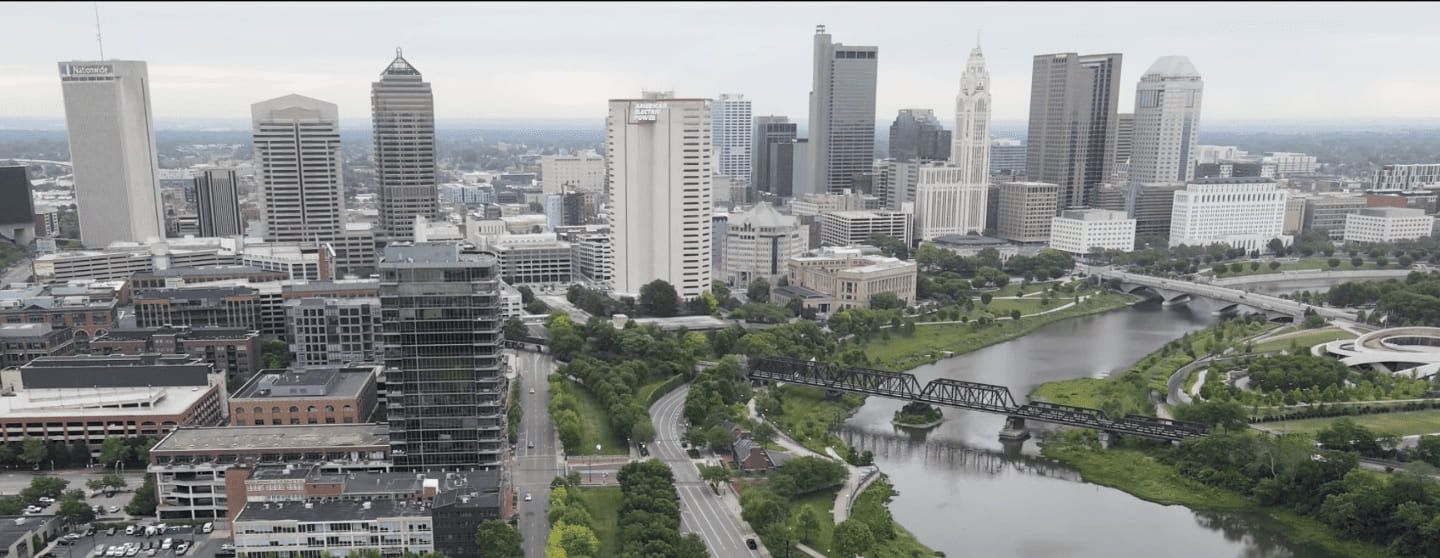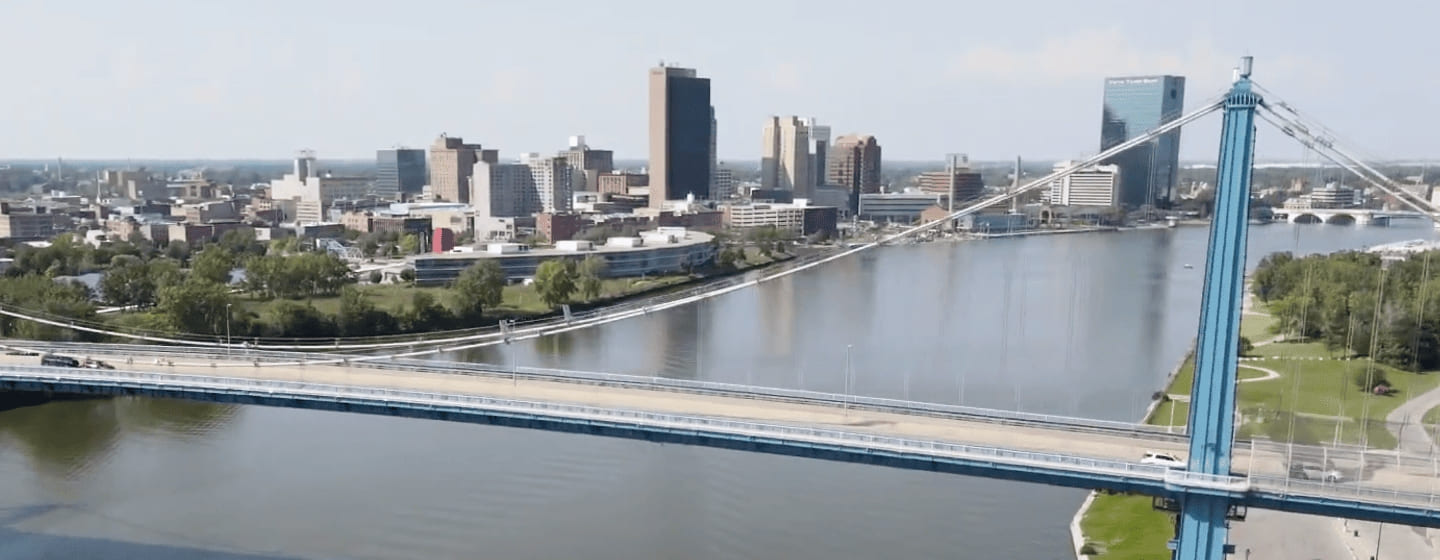The Psychology of a Small Town Heart: Navigating Love in Gratis, Ohio
As a psychologist, I’ve spent the better part of three decades listening to the intricate stories of the human heart.
I’ve sat with clients in bustling cities, navigating the paradox of loneliness amidst millions, and in sprawling suburbs, untangling the complexities of manicured lives.
But some of the most fascinating, challenging, and ultimately rewarding psychological landscapes I’ve ever explored are found in the dating scenes of small towns.
Towns like Gratis, Ohio.
With a population that hovers around 800 souls, Gratis isn’t just a location on a map; it’s a living organism.
It’s a place where your third-grade teacher remembers you spilled paint on your shoes, where the cashier at the gas station is your cousin’s best friend, and where a new car in a driveway is cause for conversation.
Now, introduce the delicate, vulnerable, and often messy process of dating into this ecosystem. What you get is a unique psychological experiment in intimacy, reputation, and resilience.
Dating in Gratis isn’t like dating anywhere else. It’s harder, in some ways, but it also holds the potential for a connection so profound it can feel like coming home.
If you’re trying to find love in Gratis, or a town like it, you’re not just swiping on an app; you’re navigating a complex web of shared history, social pressure, and deeply ingrained narratives.
Let’s unpack the psychology of it all.

The Goldfish Bowl Effect: When Everyone is a Wingman (and a Watchdog)
The most immediate psychological reality of dating in a town of 800 people is the complete and utter lack of anonymity. I call this the “Goldfish Bowl Effect.”
Every move you make is visible, transparent, and subject to commentary. A casual coffee date at the local diner isn’t just a coffee date; it’s a public announcement, a subject for the Tuesday morning gossip circle.
The Psychology at Play:
Performance Anxiety: When you feel constantly observed, a first date can feel less like a genuine connection and more like a stage performance.
You’re not just worried about what your date thinks, but what their aunt, your old high school coach, and the mailman will think when they see you together.
This external pressure can stifle authenticity, making it difficult to relax and be yourself.
Reputation as Currency: In a small town, your reputation is one of your most valuable assets. A messy breakup doesn’t just end a relationship; it can alter your social standing.
This high-stakes environment can lead to conflict avoidance, where individuals stay in lukewarm relationships for fear of the social fallout, or avoid dating altogether to protect their public image.
Accelerated Intimacy (Forced): The Goldfish Bowl can create a sensation of accelerated intimacy.
Because the community “knows” you’re a couple after one or two public appearances, you might feel pressured to define the relationship or reach milestones (meeting family, etc.) far sooner than you naturally would.
Navigating the Goldfish Bowl:
The key is to reclaim your narrative. Instead of seeing the visibility as a threat, reframe it. Acknowledge it with your date.
A simple, “Well, I guess the whole town knows we had coffee now,” can break the tension and create an immediate “us against the world” bond. Intentionally create private spaces for your budding relationship.
A drive out to Hueston Woods State Park, a quiet evening at home, or a trip to a restaurant one town over in Eaton or Camden can give your connection the oxygen it needs to grow away from prying eyes.
The Scarcity Myth vs. The Familiarity Principle: “There’s No One Left!”
This is the number one complaint I hear from small-town clients: “I’ve known everyone here my whole life.
There are no options.” This feeling is powerful and pervasive, but it’s often rooted in two competing psychological principles.
The Psychology at Play:
The Scarcity Mindset: This is the belief that resources—in this case, eligible partners—are limited. When you look at a town of 800 people, it’s easy to do the mental math and feel a sense of panic.
This mindset causes you to shut down possibilities, focusing on lack rather than opportunity. It becomes a self-fulfilling prophecy: if you believe there’s no one for you, you’ll stop looking, thus ensuring you find no one.
The Familiarity Principle (or Mere-Exposure Effect): This principle states that we tend to develop a preference for things merely because we are familiar with them.
However, in dating, this can work against you. You’ve known “Tommy” since he was the kid who ate paste in kindergarten.
You see “Sarah” as the girl who was head cheerleader. You’ve placed everyone you grew up with into neat, platonic boxes.
Your brain has categorized them so thoroughly as “neighbor,” “classmate,” or “friend’s little sister” that it resists recategorizing them as “potential romantic partner.”
Deconstructing the Narrative:
The solution here is a conscious cognitive shift. It requires you to actively fight against your own mental shortcuts.
The Re-Introduction Exercise: Make a mental list of the single people you know in your age range.
Now, for each one, consciously try to erase the decade-old label you’ve assigned them. Instead, imagine you are meeting them for the first time today.
What are they like now? What are their jobs, their hobbies, their passions? People change profoundly after high school. The quiet kid in the back of the class might now be a fascinating, well-read entrepreneur.
Slightly Expand the Radius: You don’t need to move to Cincinnati. But what about Preble County as a whole? Or nearby Richmond, Indiana?
Expanding your search radius by just 20-30 miles exponentially increases the dating pool while keeping you within a community that shares similar Midwestern values.
Online dating can be a powerful tool here, acting as a bridge to these neighboring towns.
The Five-Mile Radius Rule: Redefining “Date Night”
In a city, a date might be a new rooftop bar, a niche art gallery, or a concert. In Gratis, the options are… different.
This perceived lack of “things to do” can feel like a major obstacle, but from a psychological standpoint, it’s actually a hidden advantage.
The Psychology at Play:
Shared Experience vs. Passive Consumption: Psychological studies on relationship formation show that bonds are built more strongly through active, shared experiences rather than passive consumption.
Watching a movie together is nice, but you’re both just staring at a screen. You learn very little about each other.
Creativity and Vulnerability: Having to invent a date night forces creativity. And creativity requires a degree of vulnerability and cooperation.
Planning a picnic, finding a hidden spot for stargazing, or tackling a project together (like gardening or fixing something) reveals far more about a person’s character, problem-solving skills, and sense of humor than a fancy dinner ever could.

Gratis-Approved Date Ideas that Build Real Connection:
The Scenic Drive & Talk: The country roads around Preble County are beautiful. A simple drive with a good playlist and no destination can be an incredible way to have a deep conversation without the pressure of constant eye contact.
Explore Local Nature: A walk along Four Mile Creek, a day trip to a nearby state park, or even just a walk through the village on a quiet evening. Nature is a natural de-stressor and encourages comfortable silence and easy conversation.
Attend a Community Event as a Team: Go to the Preble County Fair, a high school football game, or a local church fundraiser. Navigating these events together allows you to see how your date interacts with a community—a crucial piece of data in a small town.
The “At-Home” Date: Perfect a recipe together, have a board game night, or build a bonfire in the backyard. These low-cost, high-intimacy dates are where real connection is forged.
Escaping the Echo Chamber: Authenticity in a World of Shared History
Dating someone in Gratis often means you’re not just dating them; you’re dating their family history, their reputation, and the town’s collective memory of them. This can create a powerful pressure to conform.
The Psychology at Play:
Erikson’s “Identity vs. Role Confusion”: While this is typically a stage for adolescents, it can re-emerge in small-town dating.
There’s the pressure to fit the “role” everyone expects of you versus expressing your true, authentic “identity.”
Perhaps you’ve changed, you have different political views than your parents, or you don’t want the life everyone assumes you do. Dating can bring this internal conflict to the forefront.
The Narrative Trap: People love stories. Your community has a story about you, and they have a story about your date’s family.
The challenge is to create your own story, separate from the narratives that have been written for you.
Can the daughter of a farmer really date the son of the town mechanic if their families had a feud 20 years ago? In a small town, these things feel surprisingly relevant.
Forging Your Own Path:
This is perhaps the most difficult—and most important—work. It requires a strong sense of self. You must be grounded in your own values, your own desires, and your own vision for the future.
Communication is your greatest tool. Have open conversations with your partner about these pressures.
“I feel like people expect us to get serious quickly because both our families have been here forever. How do you feel about that?”
Voicing these anxieties removes their power and transforms the dynamic from you and them against the town’s expectations, to the two of you as a united team.
Frequently Asked Questions
Let’s address some of the most common, practical questions I get about navigating this unique dating world.
The point is context. Seeing someone you know on a dating app is a signal. It says, “I am actively and intentionally looking for a partner.” This changes the entire dynamic. It moves “Jim from the hardware store” out of the “hardware store guy” box and into the “potential date” box. It gives you explicit permission to see him—and for him to see you—in a new light. Don’t swipe left just because you know them; use it as the opening you’ve been waiting for.
This is the quintessential small-town dilemma. The key is radical acceptance and strategic management. First, accept that you will see them. Fighting this reality only creates more anxiety. Second, have a pre-planned strategy. You and your new partner should discuss this. The plan is simple: a polite nod, a brief “hello,” and then you immediately re-engage with your partner. Turn to them, touch their arm, and ask them a question. This non-verbally communicates, “My focus and priority are right here with you.” It’s about reassuring your current partner, not engaging with your past.
It’s an option, but it’s rarely the only one. Before making such a life-altering decision, I challenge my clients to conduct a three-month “Dating Sabbatical” in their own town. For three months, you actively engage with all the advice here: you re-evaluate people you know, you expand your radius by 20 miles on the apps, you practice creative date nights, and you work on your own sense of self. If, after giving it a truly intentional effort, you still feel stuck, then moving becomes a choice made from a place of empowerment, not desperation.
Accountability. In the anonymous, disposable dating culture of big cities, it’s easy for people to “ghost,” to be unkind, to misrepresent themselves. In Gratis, accountability is baked into the system. The person who treats you poorly also has to face your brother at the fire station breakfast and your mom at the post office. This social fabric, while sometimes stifling, often encourages a higher level of decency, respect, and commitment. The roots run deep in Gratis, and if you find a love that can flourish there, it will be anchored in a way that city-dwellers can only dream of.



